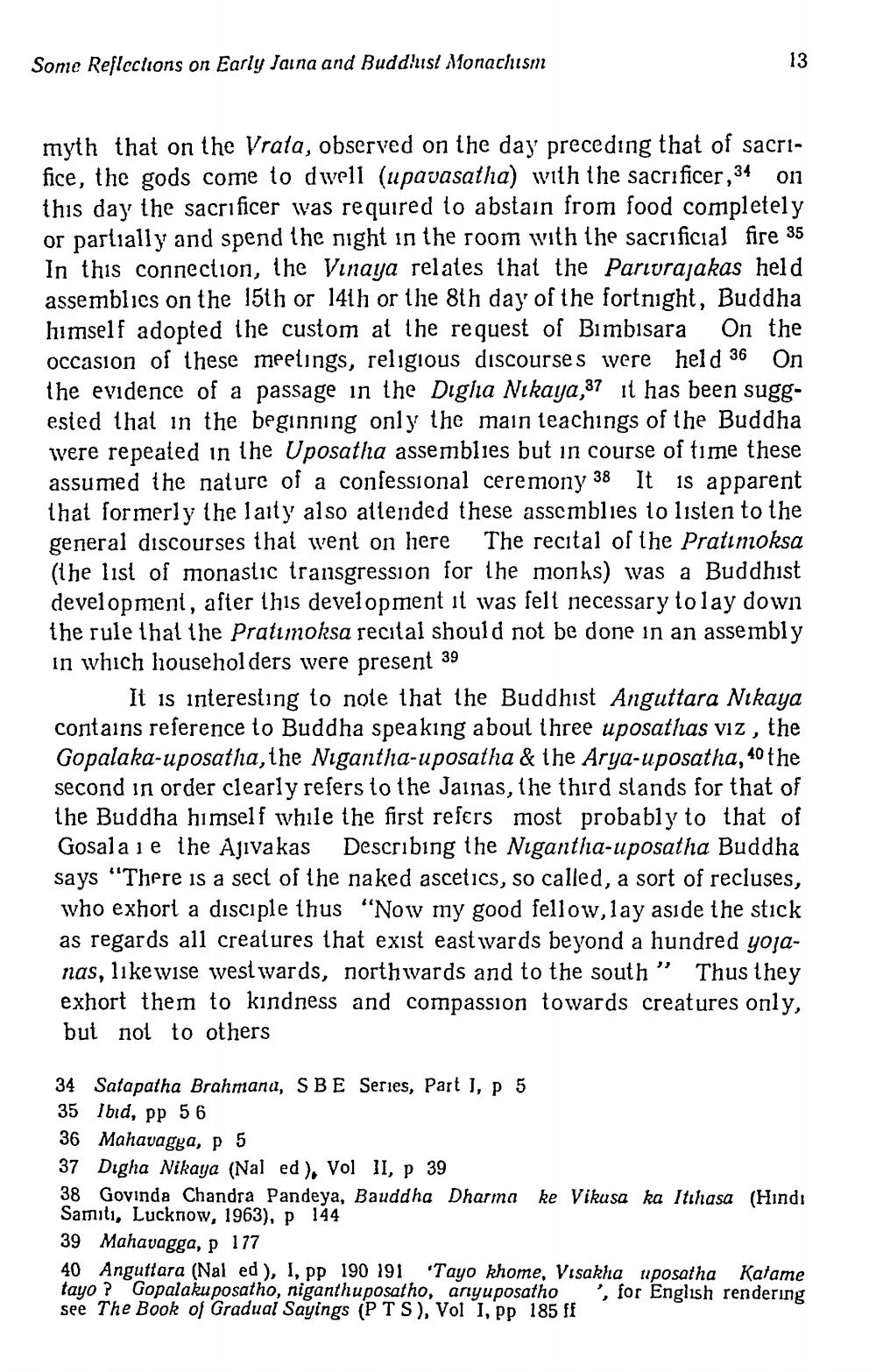________________
Some Reflections on Early Jaina and Buddhist Monachism
myth that on the Vrata, observed on the day preceding that of sacrifice, the gods come to dwell (upavasatha) with the sacrificer,34 on this day the sacrificer was required to abstain from food completely or partially and spend the night in the room with the sacrificial fire 35 In this connection, the Vinaya relates that the Pariurajakas held assemblies on the 15th or 141h or the 8th day of the fortnight, Buddha himself adopted the custom at the request of Bimbisara On the occasion of these meetings, religious discourses were held 36 On the evidence of a passage in the Digha Nikaya,37 it has been suggested that in the beginning only the main teachings of the Buddha were repeated in the Uposatha assemblies but in course of time these assumed the nature of a confessional ceremony 38 It is apparent that formerly the laity also attended these assemblies to listen to the general discourses that went on here The recital of the Pratimoksa (the list of monastic transgression for the monks) was a Buddhist development, after this development it was felt necessary tolay down the rule that the Pratimoksa recital should not be done in an assembly in which householders were present 39
It is interesting to note that the Buddhist Anguttara Nikaya contains reference to Buddha speaking about three uposathas viz , the Gopalaka-uposatha, the Nigantha-uposatha & the Arya-uposatha, 40 the second in order clearly refers to the Jainas, the third stands for that of the Buddha himself while the first refers most probably to that of Gosala i e lhe Ajivakas Describing the Nigantha-uposatha Buddha says "There is a sect of the naked ascetics, so called, a sort of recluses, who exhort a disciple thus "Now my good fellow,lay aside the stick as regards all creatures that exist eastwards beyond a hundred yojanas, likewise westwards, northwards and to the south” Thus they exhort them to kindness and compassion towards creatures only, but not to others
34 Satapatha Brahmana, SBE Series, Part I, p 5 35 Ibid, pp 5 6 36 Mahavagya, p 5 37 Digha Nikaya (Nal ed), Vol II, p 39 38 Govinda Chandra Pandeya, Bauddha Dharma ke Vikusa ka Itihasa (Hindi Samiti, Lucknow, 1963), p 144 39 Mahavagga, p 177 40 Anguttara (Nal ed), I, pp 190 191 "Tayo khome, Visakha uposatha Kalame tayo ? Gopalaku posatho, niganthuposat ho, anyuposatho , for English rendering see The Book of Gradual Sayings (PTS), Vol 1, pp 185 ff




